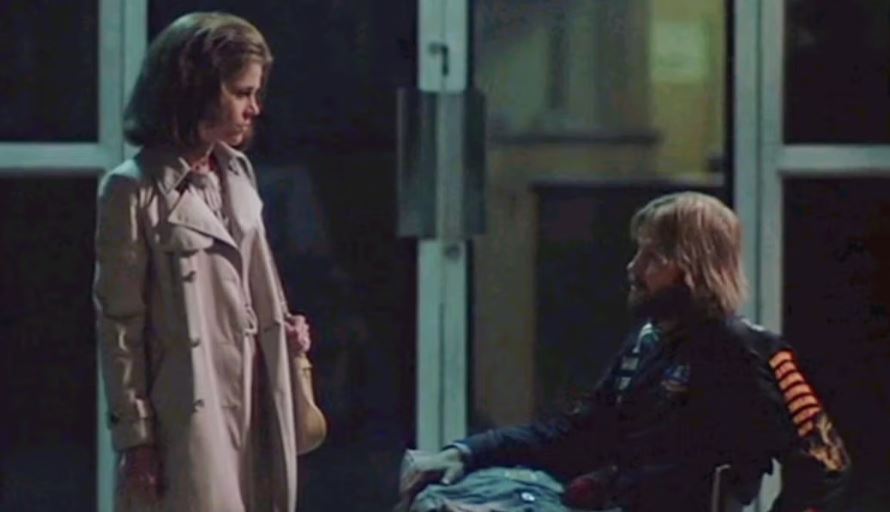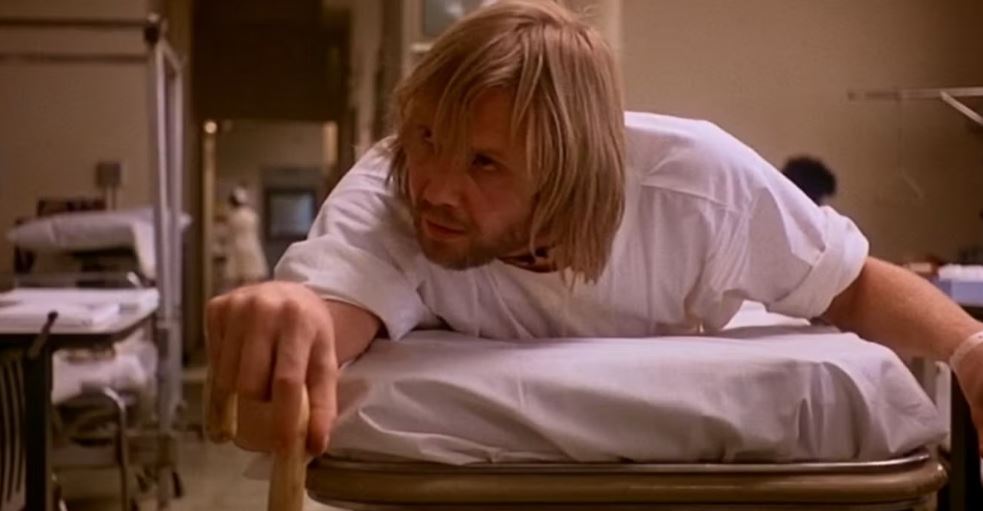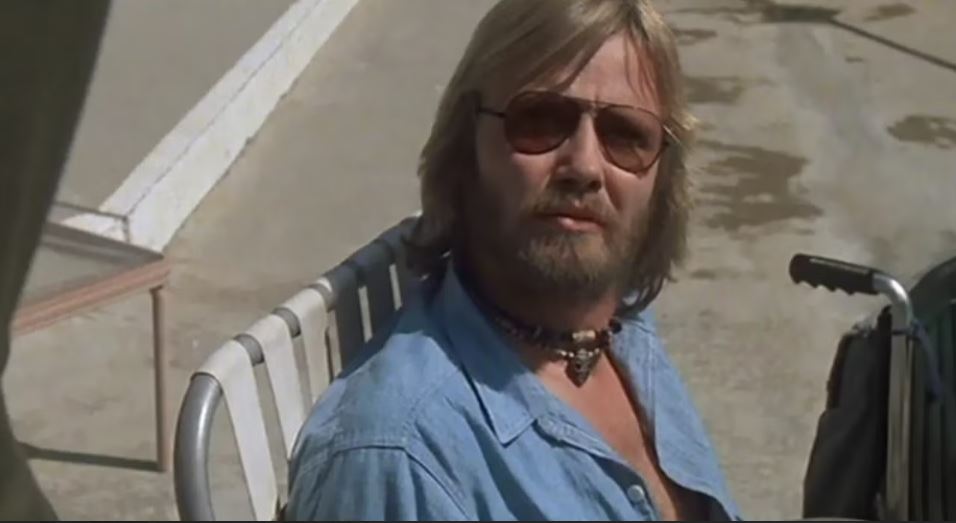Sylvester Stallone has always been candid about his career mistakes. He openly admitted that he was tricked into signing up for Stop! Or My Mom Will Shoot. He firmly believed his rival, Arnold Schwarzenegger, was angling for the role, but that wasn’t the case. Consequently, it ended up being one of the worst movies of his career.
Stallone also regretted leaving the lead role of the neo-noir crime thriller Witness to Harrison Ford. The movie earned eight Oscar nominations, including Best Actor for Ford. Financially speaking, the First Blood actor beat himself up for rejecting $34 million to commit to Rocky IV before Rocky III was even released. He should have taken the money, because the movie ended up happening anyway.
Another major missed chance for Stallone was a Vietnam War drama offered to him way before he played John Rambo. The lead role in Coming Home was reserved for Stallone. After he turned it down, it was offered to Jon Voight, who won Best Actor.
A “Jody” Is the Source of All Problems in ‘Coming Home’

One of the most common military slangs is ‘Jody,’ used to refer to a man with lecherous clutches who preys on the wives of servicemen while they are away on duty. Well, Coming Home is about such a character. The film takes us back to 1968 California, introducing us to Sally (Jane Fonda), an enchanting and ethereal beauty in the prime of womanhood. She is a military wife, about to be left alone. Her husband, Bob Hyde (Bruce Derne), is heading to Vietnam and is thrilled about it, seeing it as an opportunity for career progress.
Though Sally initially dreaded solitude, she starts feeling liberated the moment Bob is away. She moves into a beach apartment away from the base and buys a sports car. Sally also volunteers at a local Veterans Administration (VA) hospital to keep herself busy, partially inspired by a Bohemian friend. The setting’s horrific atmosphere (wounded patients everywhere) contributes to a prevailing sense of melancholy, but Sally feels comfortable. At this point, it’s hinted that it’s only a matter of time before she is consumed by unhealthy urges and driven to regrettable acts that will throw her marriage out of whack.
At the hospital, Sally meets Luke Martin (Jon Voight), a former high-school classmate who is paraplegic from injuries he suffered in Vietnam and now has strong anti-war views. The more she bumps into the flirtatious fellow, the more she starts questioning her steadfast love for her husband. Soon, the two embark on a transitory affair. When Luke is released from the hospital and granted a wheelchair, his bond with Sally gets even stronger, and as the proceedings unfold, cinephiles might spot pastiches linked to a few popular war romance dramas. But this gem comes off as more intriguing because it is far less reliant on sound and cinematographic flexing, offering a more solid tale of love found and lost.
The affair makes Sally extremely happy. She fools around with Luke, plays with him at the beach, and makes love to him, resulting in her first orgasm. Then the most predictable thing happens. Bob returns home sooner than expected, having accidentally wounded himself in the leg and developed a strong case of PTSD. Chaos!
Sylvester Stallone Chickened Out

Coming Home was conceived by Jane Fonda as the first movie for her production company, IPC Films. She hoped to tell a story that hinged on the painful truths about love and war, so she settled for this idea after meeting Ron Kovic, a paraplegic Vietnam War veteran, at an antiwar rally. At that time, Kovic had just completed his autobiographical book Born on the Fourth of July, which later became a Tom Cruise Oscar-winning war movie.
When director Hal Ashby signed up for the project, Fonda cast herself as Sally. That was undoubtedly a great choice, as she is extraordinary in this war romance drama, conveying, with remarkable subtlety and anguish, the plague of an affair that possesses her character and tears her life apart. Fonda then sought a top box-office star for the male lead, with Al Pacino, Jack Nicholson, and Sylvester Stallone all being offered the part. Unfortunately, they declined.
According to the book, Vietnam at 24 Frames a Second: A Critical and Thematic Analysis of Over 400 Films about the Vietnam War by Jeremy Devine, Jon Voight was meant to play the husband, Bob, but he campaigned to play the paraplegic veteran and got it because he had participated in the anti-war movement and was one of Fonda’s close friends. Just like that, Voight gave a performance that earned him an Oscar.
In 2012, Sylvester Stallone opened up on why he turned down the role, telling Maclean’s Magazine that the idea of playing a paraplegic veteran scared him, as did the movie’s “liberal point of view.” The actor admitted he was foolish for not jumping on the opportunity.
“Now, I think I should have done it. Usually, whenever you’re scared of something, do it. If you’re not afraid of it, don’t do it. I was very foolish. I didn’t have the guts to do it, and at that time I really wasn’t a fleshed-out actor. I don’t know even if I am now.”
In another interview with The Hollywood Reporter, Stallone reiterated his remarks but admitted that the right actor got the role. He figures he wouldn’t have done better than Jon Voight, but many will disagree, considering the range he showed in Rocky. The Hollywood legend has proven that he can be a proper drama actor. He just never lets it out often enough.
Stallone’s Career Might Have Taken a Different Direction if He Had Starred in ‘Coming Home’

Starring in Coming Home could have taken Sylvester Stallone’s career in a different direction, especially if he had gotten another Oscar nomination for it. The actor had wowed the Academy with his performance in Rocky two years earlier and was even labeled “the next Marlon Brando” by Roger Ebert. Well, the war romance drama might have just made him the next Marlon Brando.
Consecutive Oscar nominations in two drama movies would have influenced Stallone to maintain that trajectory. Consequently, he’d never have become the action star we know today. The Copland star would now be discussed among actors like Anthony Hopkins and Denzel Washington rather than Jean-Claude Van Damme and Arnold Schwarzenegger. He’d be taken more seriously by critics who have always panned his movies for poor acting and ramshackle plots.
Coming Home might also have dissuaded Stallone from taking on the lead role in First Blood, since the two movies are a little similar. Like the former, the latter features a Vietnam veteran who has just returned home and isn’t finding life easy. This particular movie shaped Stallone into a heavyweight in the action genre. Without it, he’d be on an alternate and interesting path.
Still, all factors considered, Stallone has nothing to cry about. He grew to be one of the greatest movie stars of all time and has achieved the kind of longevity most actors only dream of. Maybe all this would never have happened if he had played Luke Martin and gotten the kinds of accolades Jon Voight did.
